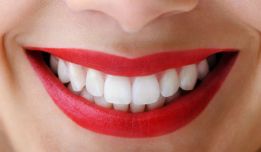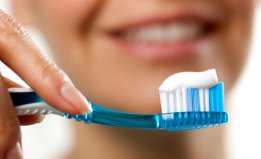The old saying: 'prevention is better than cure' has a lot of truth attached to it. Preventive dentistry, a combination of your own actions at home and regular visits to your local dental clinic, helps avoid common problems such as enamel wear, gum diseases, the formation of cavities and others.
Let's look first at the important benefits you'll gain, and then provide more details covering the key actions to take.
The benefits of preventive dentistry
Actions taken, both now and ongoing, help prevent the development of annoying and intrusive dental problems such as gingivitis or periodontitis (both causing inflammation of the gums and which can also affect their supporting structures). Preventive dentistry also avoids the development of cavities or the loss of vital tooth enamel.
Whilst adults can gain such benefits, and it's important to do so, it's even more important when we consider your kids. It's vital to help them to develop strong and healthy teeth to take with them into their adult life. Making effective use of both topical fluoride treatments and dental sealants help prevent the development of damaging decay and the need for a filling.
At the other end of an adult life, practising preventive dentistry helps older adults to hold on to their own teeth, rather than finding the need to undergo sometimes expensive and often time-consuming replacement treatments such as dentures or dental implants.
Taking three simple steps towards healthy teeth.
Adults often teach their kids to brush and floss, but might then not carry out such practices effectively on themselves! So, let's look at each...
Brushing your teeth
Using fluoride toothpaste, it's recommended that you brush at least twice a day, taking a couple of minutes to reach all corners and crannies. At the same time, one step many people neglect is to also brush their tongue.
This helps keep bacteria at bay and promotes fresh breath. One final note: it's important to change your toothbrush (or heads of powered brushes) every three or four months, or sooner if the bristles start to fray or fall apart.
Regular flossing
Daily is recommended, as this helps to clean out those tight spaces between teeth where simple brushing might not provide a total clean. There are specific techniques to floss effectively - ask your dentist to go through them with you at your next dentist check up.
For people wearing braces, floss threaders might be best to get between the metal brackets.
Visit your dentist
A minimum of at least an annual check-up; more frequently if you are prone to some dental problems. During your appointment, your teeth will be professionally cleaned and thoroughly examined, allowing early identification and swift rectification of problems that usually only get worse if ignored.
Taking just a little time to undertake preventative care for your teeth at home, and combining this with regular appointments with your dentist, makes good sense.
Your dentist and hygienist will be happy to answer any questions you have and provide useful tips to help you keep your teeth at their best.






